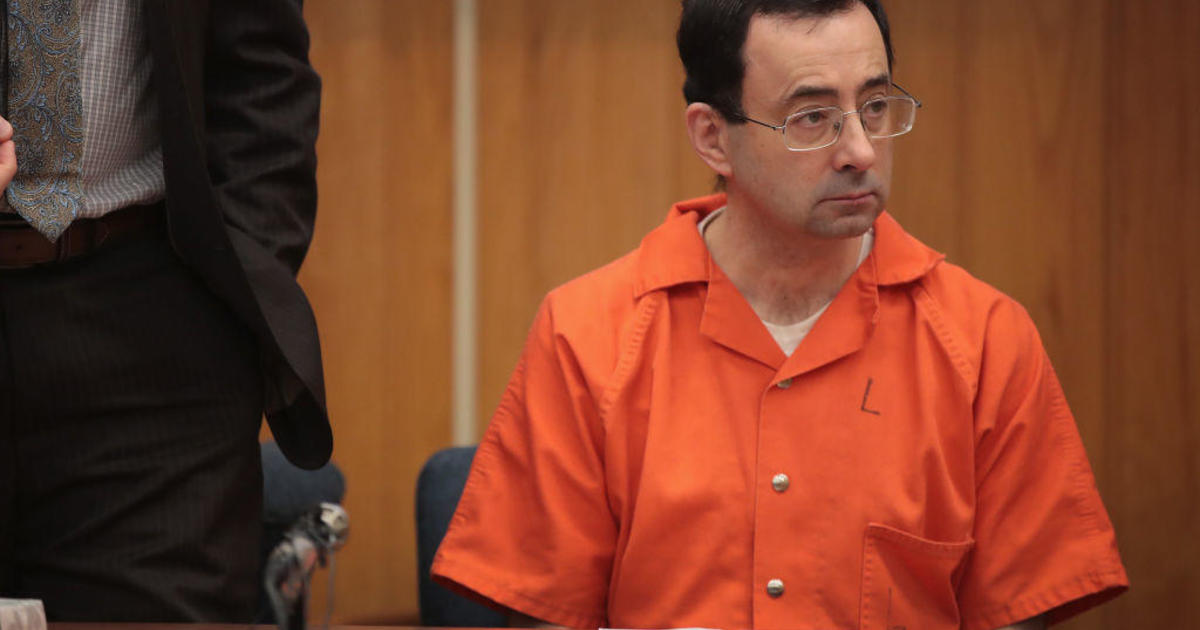Transcript: James Bullard on "Face the Nation," April 5, 2020
The following is a transcript of an interview with James Bullard, the president and CEO of the Federal Reserve Bank of St. Louis, that aired Sunday, April 5, 2020, on "Face the Nation."
MARGARET BRENNAN: The breathtaking speed of this global economic contraction is unlike anything we've ever experienced. And that makes it very difficult to project out what this slowdown will mean. This week, there were more than six and a half million new unemployment claims filed by now jobless Americans. Combined with over three million last week, that means nearly 10 million Americans have lost jobs in less than a month. We turn now to James Bullard, president and CEO of the Federal Reserve Bank of St. Louis, one of 12 banks that make up the Federal Reserve system. He joins us from St. Louis. Good to have you with us.
FEDERAL RESERVE BANK OF ST. LOUIS PRESIDENT JAMES BULLARD: Pleasure to be here.
MARGARET BRENNAN: You and your team have predicted that 47 million Americans could lose their jobs, bringing the jobless rate above 30 percent. It- it sounds like you're saying the job market is in freefall. Where do you see this happening? What Americans? What industries?
BULLARD: Yeah, I would push back against the idea of the economy or the job market being in freefall. We're asking people to stay home to invest in national health, and we're asking them to use the unemployment insurance program in order to get the transfers they need to be able to pay bills while they're at home, while they're not able to work because health authorities are trying to get the virus under control. Our estimates, which are available at our blog, St. Louis Fed on the economy blog, suggests the unemployment rate could go anywhere between 10 percent and 42 percent. The 32 percent number is a- is a compromise in the middle.
MARGARET BRENNAN: Well, that's what I'm asking you about. I mean, there's this idea when I speak to business leaders in particular, that some of those jobs are going to come back, that these are temporary furloughs, that they will be somehow just a switch that flips on and the economy will come back roaring. Isn't that a little bit of a projection of a perfect scenario here?
BULLARD: Well, I think it can be done. Whether it will be done depends on execution. I thought Congress did a great thing in passing their bill. I thought it was appropriately sized for this situation. The object is to keep everybody whole during the period when you're asking people to not go to their jobs and not go to the shops and- and basically not participate in the economy.
MARGARET BRENNAN: Right.
BULLARD: So in some ways- in some ways, the- the uptake on the unemployment insurance program is a good thing because it means you're getting the transfers to the people that are being disrupted by this health-ordered shutdown.
MARGARET BRENNAN: When you talk about transfers, you know, we saw one of the emergency programs launched by the government, this 350 billion dollar package to help small businesses, supposed to be up and operational this week. But that's not actually happening according to some of the biggest banks like Citi, like they're not even accepting applications right now. What is the real world impact of delays like that? Because the money is needed now.
BULLARD: It sure is, and we're in the middle of a national crisis. So you would expect some chaos. But we talked to the SBA, the Small Business Administration, on Friday. They actually originated a lot of loans on Friday. I thought it was close to four billion if I have it right. And they're going to have even bigger days on Monday and Tuesday here. I think- I think there is a lot of potential for that program to be successful.
MARGARET BRENNAN: But what about the size of this rescue package? The president said as recently as yesterday that he thinks there may need to be more money offered to small businesses than what has already been authorized by Congress. Do you think we need a fourth rescue package?
BULLARD: I felt like this one was well-sized for the situation. I think most of the impact is going to come in the second quarter here, which just started a few days ago. If you think about the US economy with very round numbers, we produce about five trillion dollars worth of goods and services and hence five trillion dollars worth of income every quarter. This shutdown means that we're trying to only produce essential services and the- the goods and services that can be produced by workers working from home. Surely, that's less than 50 percent of the total economy. So income is gonna be down 50 percent. If you said that's two and a half trillion, that sounds like about the number that Congress came up with here. So in that sense, I think you've got the right amount of resources. The challenge is how are you gonna get that to the right people--
MARGARET BRENNAN: Right.
BULLARD: --that really have been disrupted. And that's the execution risk that we have here. But in principle, this is an understandable situation. We do not want people to go back to the basketball games. We do not want people to get on planes while people- while this disease is ravaging the economy. So we want them to be able to pay bills, keep people whole during this crisis, and then we'll come out on the other side. There's nothing wrong with the economy itself. The economy was actually doing quite well going into this health situation.
MARGARET BRENNAN: I know but that has that assumption also built into consumer psychology that people will be si- feel safe enough to do the things that they did before. Do you think that this global economy is going to look the same on the other side of this pandemic? Are those jobs actually going to exist for people to go back to?
BULLARD: You know, I have good news for you, MARGARET, because we have a- there is a solution using available technology today to fix the economic part of this problem. The solution is universal testing. What you want is every single person to get tested every day. And then they would wear a badge like they would at a- after they voted or something like that to show that they've been tested. This would immediately sort out who's been infected and who hasn't been infected. That would help the health care sector. But it would also help the economy because we could interact with each other with a lot of confidence.
MARGARET BRENNAN: Well, we will talk about that surveillance portion of the equation that you just referenced there ahead. Stay with us. More FACE THE NATION.



